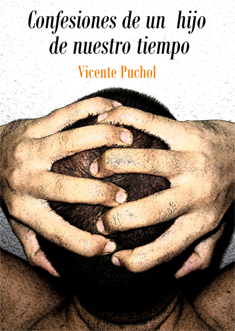



Confessions of a Child of Our Times
Synopsis: Confessions of a Child of Our Times
Martin Guerra lost his father at the age of three, and his unloving
mother left her son in the care of a former servant in the household. She then
moved out of the house and into an apartment. His mother had no maternal instinct – rather, what moved her was making money. Martin told people that his mother and he had “divorced.” In the solitude and indifference of his home, Martin, who was short in stature, grew up sickly and shrunken. The only other attribute he needed to have for his schoolmates to call him “birdy” was his beaky nose.
Martin Guerra, who was possessed of talent and a great deal of
willpower, bet his life on entering the most elite branch of public service: that
of “state’s referee.” While doing his law degree, he also studied philosophy
and literature on his own, and once he had finished his degree, he began to
prepare to join the corps of state’s referees. He studied twelve hours a day,
for years on end. In this way, he aimed to overcome the challenges of his
withered bird’s form and, at the same time, to prove to his mother, who had
never wanted to have a child and who had said as much to his face, that he
was not a “homunculus” (his grandfather’s exclamation at the moment of his
birth and on many other occasions, as an amusement), but rather a state’s
referee, the most ambitious career for any holder of a law-degree.
During the long years of his preparation, Martin was torn apart by the
love of two women, Elena and Soledad; once he had joined the Office of the
State’s Referee, he was obliged to do battle with corruption in the world of
high finance, thus coming to know deeply the homo novus, a species midway
between man and machine, who ruled over a ferocious form of
capitalism via computers. Disenchanted with the world that he legalized as a
professional matter, he took a leave of absence, and making use of his
savings, went to live in a house on the coast where he could think, write, and
read. He disappeared completely, as if in a puff of smoke.
I have based this truthful story on his writings and on my many
conversations with him.







